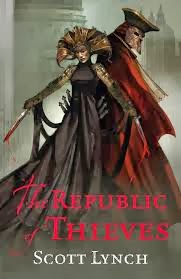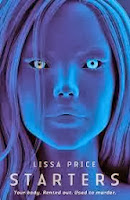Wow! Four and a half months since I've last updated. I'm sorry, anyone who's out there looking for a good book to read - it's been a busy time. I suppose the next couple of posts will be relating to what I can remember reading during those months... The record I was keeping of my reading seems to have been abandoned at about the same time, so I'll work from memory here.
One of my highlights of the last few months has been reading retired Canadian astronaut Chris Hadfield's book 'An Astronaut's Guide to Life on
Earth', which I read over Christmas. I know this has already been a huge bestseller, but if anyone hasn't read it yet, I couldn't recommend it more highly for anyone interested in biography, popular science, and even popular psychology. Hadfield tells the story of his career as an astronaut, including his time as commander of the International Space Station, in his own warm and utterly likeable tone. Anecdotes based on everything from his childhood ambitions of space travel to his eventual spacewalks are interspersed with insights into how character traits which helped his career could be things we could all do with taking on board.
Hadfield traces his career as far back as 1969, to when, as an awed nine year-old, he watched Neil Armstrong and Buzz Aldrin walk on the surface of the moon. He decided on the spot to aim towards becoming an astronaut. It's both wildly impressive and intimidating how he describes realising that he could begin this journey straight away. 'I recognized even as a 9-year-old that I had a lot of choices and my decisions mattered. What I did each day would determine the kind of person I'd become.' 'I had to imagine what an astronaut might do if he were 9 years old, then do the exact same thing. [...] Would an astronaut eat his vegetables or have potato chips instead? Sleep in late or get up early to read a book?' To reassure anyone who is imagining a lost childhood, he also says: 'Determined as I was to be ready, just in case I ever got to go to space, I was equally determined to enjoy myself. If my choices had been making me miserable, I couldn't have continued. I lack the gene for martyrdom.'
The rest of the book hops over and back between early training, Hadfield's most recent stint on the International Space Station last year, and the aforementioned insights into psychology and positive attitude. Many of these latter ideas run directly counter to modern popular psychology, which generally tends to advise us to 'not sweat the small stuff' and extols the 'power of positive thinking'. Hadfield explains how his success has been based on thinking through every tiny aspect of any task, imagining and planning for any bad situation which could possibly occur, and maintaining a great attitude - working hard as a team member and aiming to be the team member quietly contributing steadily from the back, instead of either holding the team back or setting oneself up in front as a leader. Of course, these ideas won't apply to every life situation, but they're definitely worth reading and thinking about, and make a refreshing change from the usual 'self-help' recommendations.
This story has a very happy ending, because in January Chris Hadfield was in Dublin promoting the book, and the bookshop I work in was the one selling books at the event. Always meet your heroes!














